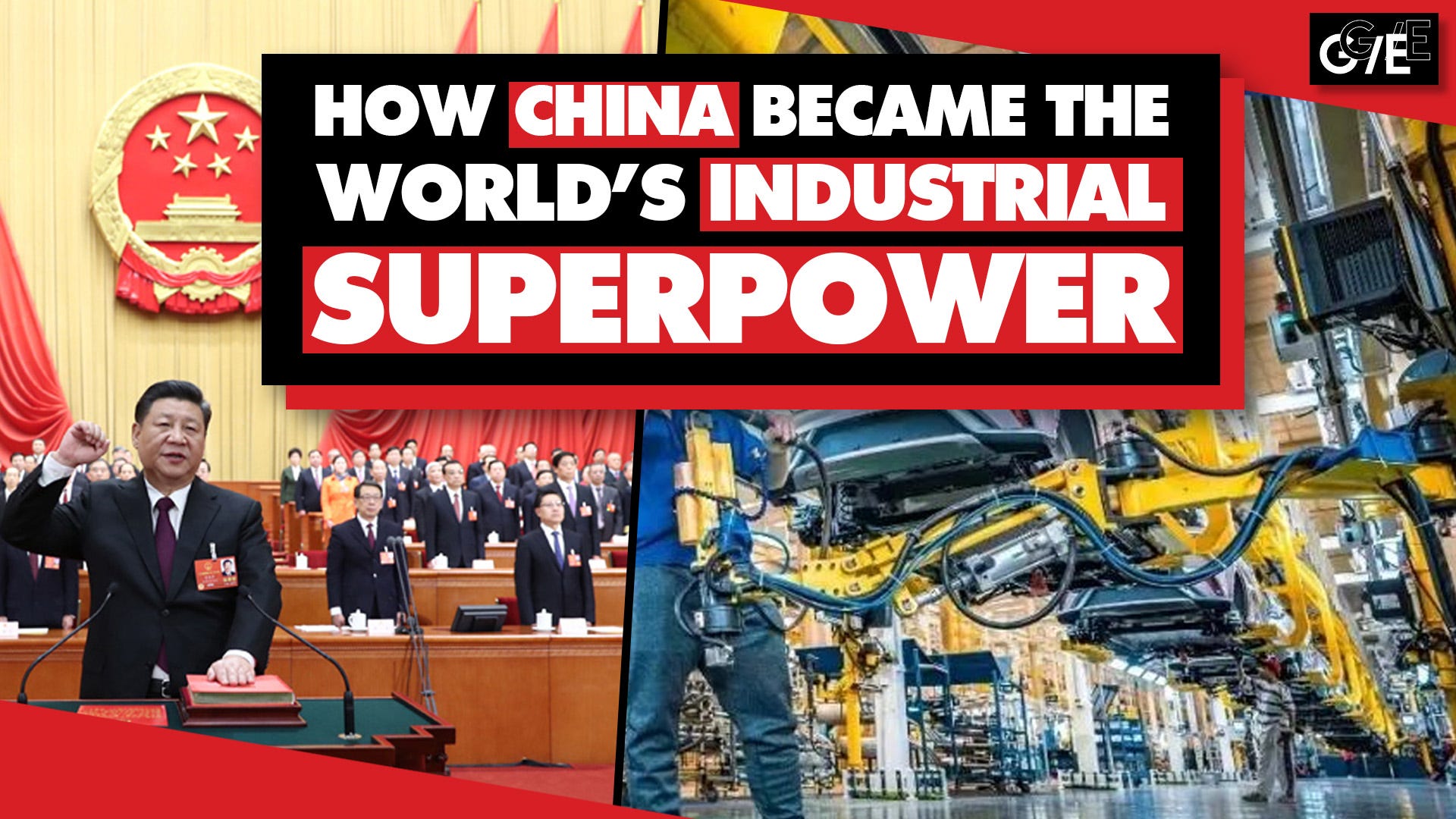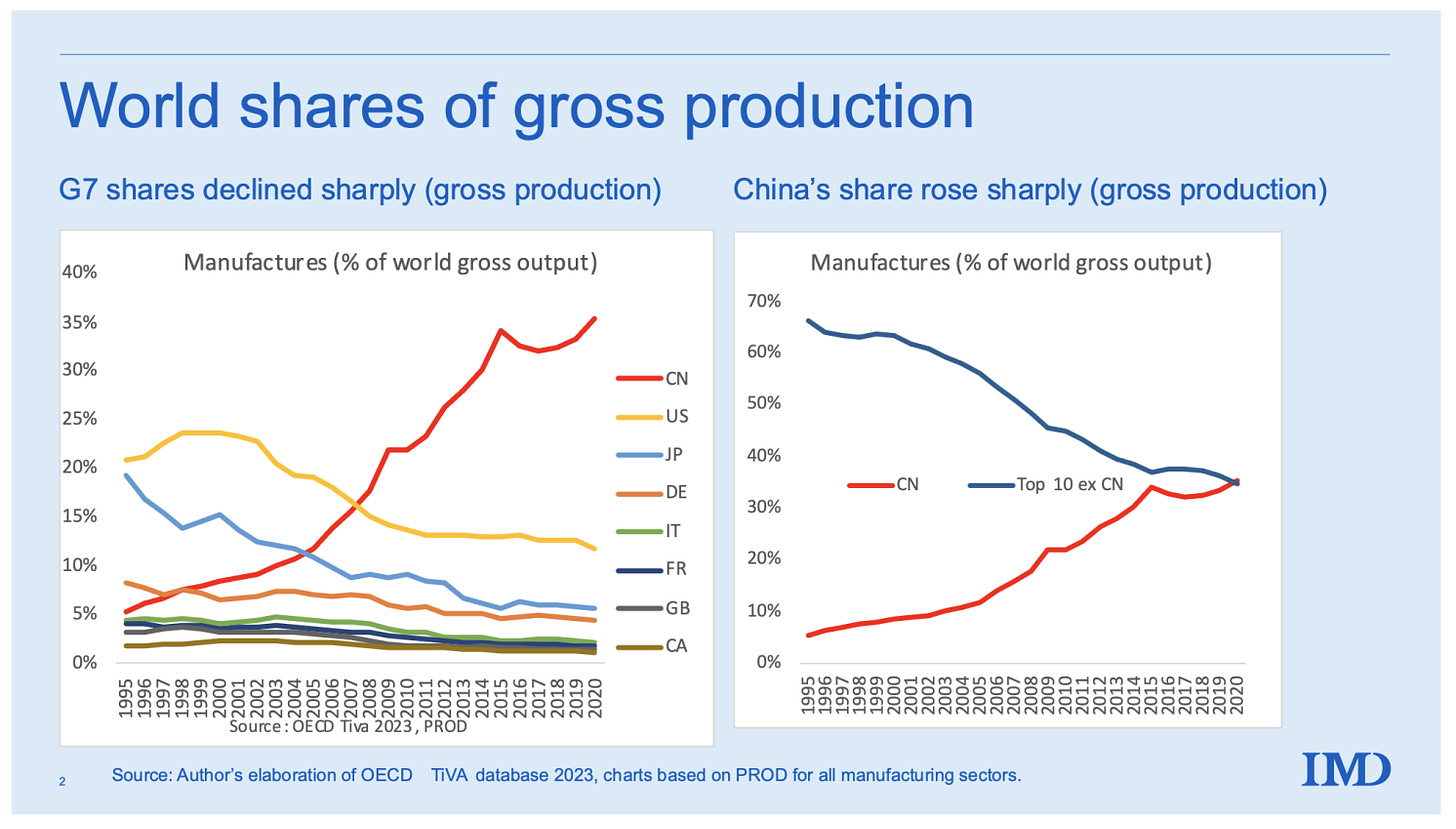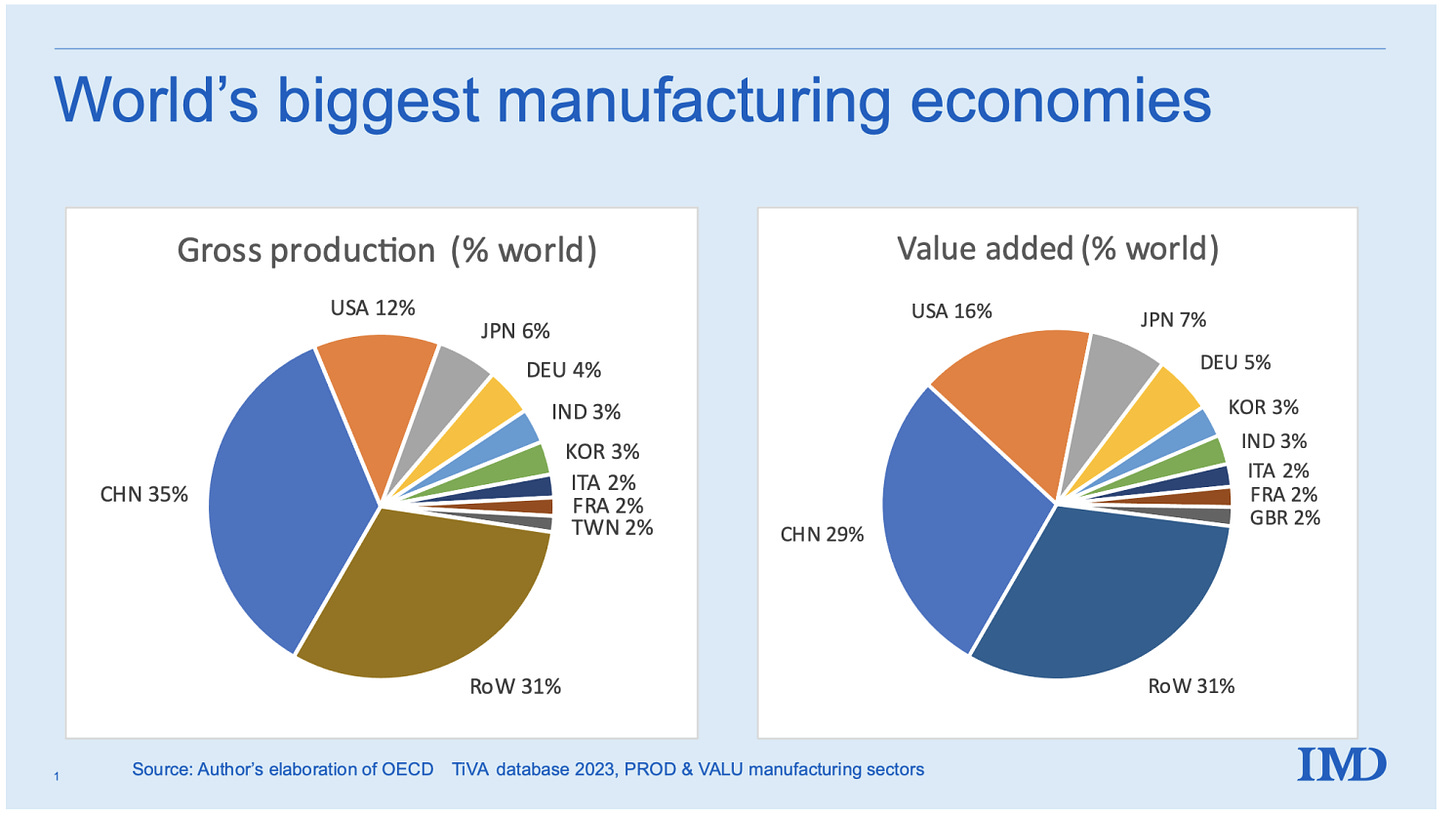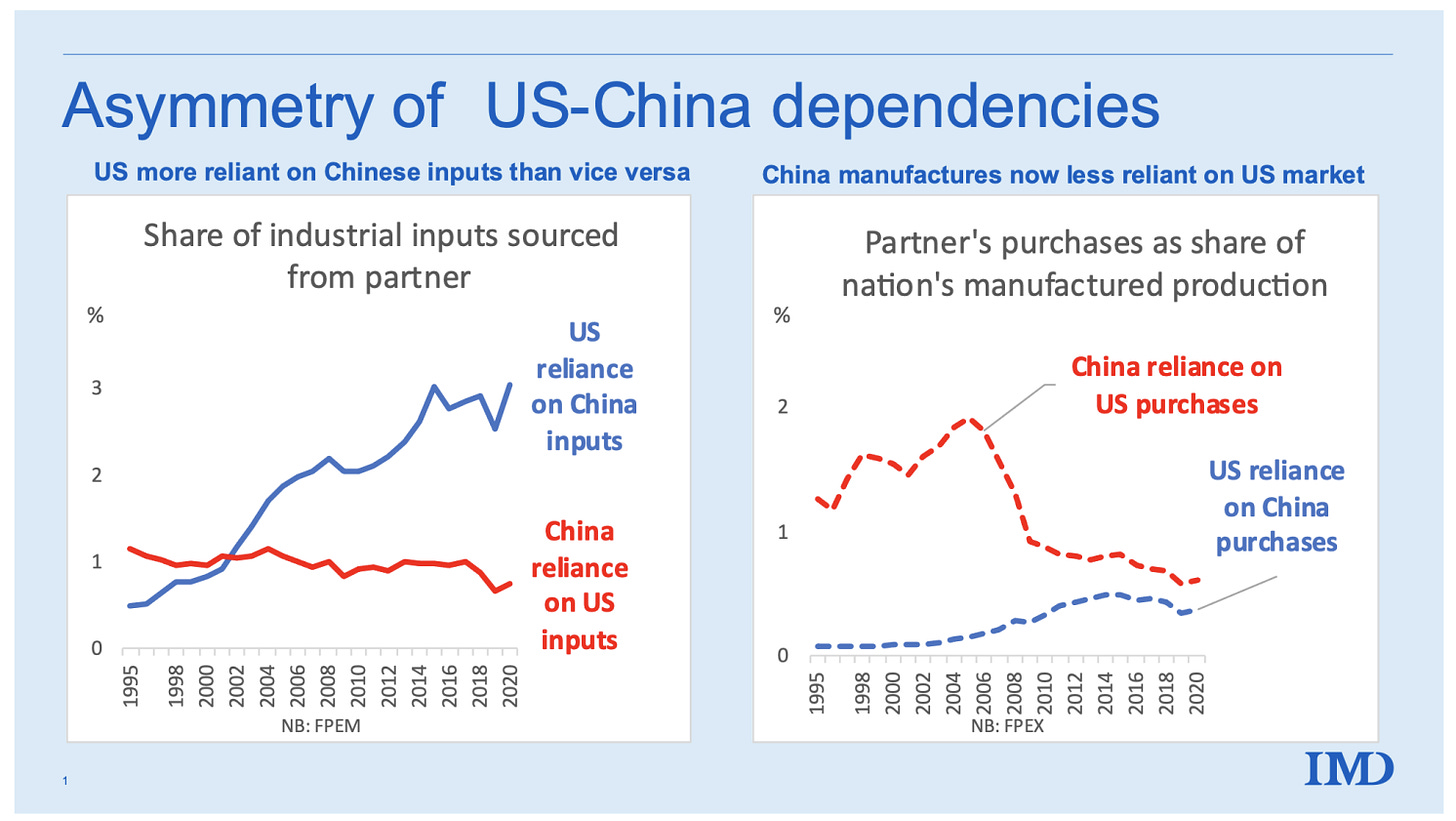China is ‘world’s sole manufacturing superpower’, with 35% of global output
China's state-led economic development model transformed it into what an EU think tank calls "the world's sole manufacturing superpower", making up 35% of global gross production.
China has overseen world-historic economic growth through a government-led development model, in which state-owned enterprises control the natural monopolies and "commanding heights" of the economy, state-owned banks give favorable loans to strategic industries, and the state's robust industrial policy helps the country move up the value chain toward higher value-added forms of production.
This model, which Beijing officially refers to as a socialist market economy, has been so successful that a prominent European think tank has acknowledged that "China is now the world’s sole manufacturing superpower".
In 2020, China made up a staggering 35% of global gross manufacturing production. That is more than the combined output of the United States (12%), Japan (6%), Germany (4%), India (3%), South Korea (3%), Italy (2%), France (2%), and the United Kingdom.
This is according to the research of Richard Baldwin, a professor of international economics at the IMD Business School in Lausanne, Switzerland, and the editor-in-chief of VoxEU, a publication hosted by the Europe-based Centre for Economic Policy Research, or CEPR (not to be confused with the Washington-based Center for Economic and Policy Research, which uses the same acronym).
CEPR is very influential in European policy-making circles, and receives funding from France's central bank and Finance Ministry, as well as the European Central Bank, International Monetary Fund, and numerous private banks in Europe.
The think tank represents the political mainstream in the EU, and is by no means a "pro-Chinese" institution.
In a January VoxEU research paper titled "China is the world’s sole manufacturing superpower", Baldwin wrote (emphasis added):
The US is the world’s sole military superpower. It spends more on its military than the ten next highest spending countries combined. China is now the world’s sole manufacturing superpower. Its production exceeds that of the nine next largest manufacturers combined.
Baldwin explained that, even when output is measured at value added (that is, gross production minus the cost of intermediate goods bought to produce those manufactures), China makes up 29% of global manufacturing, compared to just 16% for the United States, 7% for Japan, 5% for Germany, 3% for South Korea, 3% for India, 2% for Italy, 2% for France, and 2% for Great Britain.
Baldwin wrote (emphasis added):
China’s industrialisation is unprecedented. The last time the ‘king of the manufacturing hill’ got knocked off the throne was when the US surpassed the UK just before WW1. It took the US the better part of a century to rise to the top; the China-US switch took about 15 or 20 years. China’s industrialisation, in short, defies comparison.
He added that this "remarkable fact helps us to understand current US-China trade tensions".
China's rapid industrialization through a state-led development model has coincided with the United States' relative de-industrialization through a neoliberal economic model based on privatization, liberalization, deregulation, financialization, and unproductive speculation.
Seeking to halt China's rise, the US government has levied many rounds of unilateral sanctions and waged what Washington insiders have referred to as a "technology war" against China, imposing export restrictions in cutting-edge sectors like 5G, semiconductors, quantum computing, and artificial intelligence.
Western governments have pledged to "decouple" from the Chinese economy and "derisk" strategically important industries.
However, in his CEPR research paper, Baldwin emphasized that the US is much more dependent on buying Chinese manufactured goods than China is dependent on the US market to sell its exports.
"In 2020, the US was about three times more exposed to Chinese manufacturing production than vice versa", Baldwin wrote. He added that "the numbers are astounding".
Baldwin cautioned, "Politicians may wish to decouple their economies from China. These data suggest that decoupling would be difficult, slow, expensive, and disruptive – especially to G7 manufacturers".









Meanwhile the spiteful West wallows in the ruins of neoliberalism pursuing poverty digging its own grave, waging war and genocide when it should be waging peace and prosperity for all. The West must now lift itself out of both moral and fiscal poverty. The "white man's burden" has now become the white man's burden come home to roost.
In 2004 I was in Nashville at a Chamber of Commerce meeting full of mostly Republican, conservative, business owners. The subject of China.. There were presentations by guys who were active in China, and Everyone was gushing and pushing the line "You HAVE to have a China Strategy!!!".... by this, they meant that if you want to make money and stay competitive you have to invest in production facilities in China.
No one talked about strategic political and military concerns. No one questioned whether it might be dangerous to transfer all our technology to China, including airplaines and high tech stuff like Boeing and computers and communications.
I remember I talked to my father at the time, who had invited me to the event, which he was hosting in his capacity as US Dept. of Commerce Director for the state, and I told him that if we were really strategic, that was the point in time when we could still bomb and attack China and bring it under our hegemony. I was not seriously suggesting an attack; It was just a point I was making. But instead of consider geopolitical strategy, they all greedily thought of their own profit margins, and they All went to China without any restriction or limitation, in their natural desire to enrich themselves.
Those were the same Republicans, same people that today will be convinced we have to be on a competitive war footing with China.. and they will all pour their money into "safe" investments in Us military infrasturcture investments to have a big war with China .
Frankly they are either stupid or insane or both.